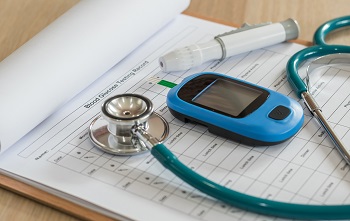
Understanding All Types of Diabetes: A Guide for Healthcare Professionals
Diabetes is a complex, chronic condition that affects how the body processes blood glucose. It comes in several forms—each with its own causes, challenges, and management strategies. For nurses and other healthcare professionals, staying current on diabetes care is essential to improving patient outcomes, preventing complications, and navigating advances in medication and technology.
This article explores the various types of diabetes and related conditions, and highlights specialized continuing education opportunities available through Pedagogy Continuing Nurse Education.
Types of Diabetes
Type 1 Diabetes
An autoimmune condition where the pancreas produces little or no insulin. It usually develops in childhood or adolescence but can occur in adults. Management focuses on insulin therapy, blood sugar monitoring, and recognizing complications such as diabetic ketoacidosis.
Type 2 Diabetes
The most common type, Type 2 involves insulin resistance and relative insulin deficiency. It’s often associated with obesity, aging, and inactivity. It can be managed with lifestyle changes, oral medications, and sometimes insulin or GLP-1 receptor agonists like semaglutide.
Gestational Diabetes
A form of diabetes that develops during pregnancy. Though often temporary, it increases the risk of future Type 2 diabetes for both mother and child. Nurses working in prenatal or obstetric care must be aware of treatment options and potential complications.
Type 3 Diabetes
Sometimes used to describe the proposed link between diabetes and Alzheimer’s disease. This concept is still emerging, but it's important for nurses to be aware of possible cognitive implications in diabetic patients.
Other Types
- LADA (Latent Autoimmune Diabetes in Adults): Has features of both Type 1 and Type 2.
- MODY (Maturity Onset Diabetes of the Young): A rare, genetic form.
- Secondary Diabetes: Caused by medications, pancreatic disease, or hormonal disorders.
Related Conditions and Complications
Diabetes doesn’t occur in isolation. It is often linked with:
- Metabolic Syndrome and Prediabetes
- Cardiovascular Disease
- Neuropathy, Nephropathy, and Retinopathy
- Increased risk of infections and poor wound healing
Understanding these comorbidities is critical for delivering holistic care.
Continuing Education with Pedagogy
To keep pace with the evolving science and technology in diabetes care, nurses can benefit greatly from high-quality continuing education. Pedagogy offers a robust library of online diabetes courses designed for nurses in every care setting—from schools to hospitals to long-term care.
Explore these courses to expand your knowledge:
- Diabetes: An Introduction: Start here for a foundational understanding of diabetes, its pathophysiology, and risk factors.
- Diabetes Overview: Type 1, Type 2, and Gestational: A comprehensive look at the primary types of diabetes and how they differ.
- Diabetes Medications: Understand oral and injectable diabetes drugs, their actions, side effects, and best practices for administration.
- Diabetes Medications Part 2: Dive deeper into the expanding field of diabetes pharmacology, including newer agents.
- Diabetes Management and Insulin Pumps: Learn how to care for patients using insulin pumps and CGMs.
- Diabetes Management and Insulin Pumps for School Nurses: Tailored for school nurses managing pediatric diabetes safely and effectively.
- Diabetes-Related Conditions and Complications: Recognize and respond to the chronic complications that can arise in diabetic patients.
- Diabetes: Metabolic Syndrome and Prediabetes: Learn to identify patients at risk and intervene early.
- Pregnancy and Diabetes: A focused course on managing diabetes before, during, and after pregnancy.
- Semaglutide for the Treatment of Type 2 Diabetes: A deep dive into the clinical use of semaglutide, a leading GLP-1 receptor agonist.
- Type 3 Diabetes: The Connection Between Diabetes and Alzheimer’s Disease: Explore the emerging research linking diabetes with neurodegenerative conditions.
Final Thoughts
Whether you're educating patients, managing medications, or coordinating long-term care, your role in diabetes management is critical. Pedagogy’s diabetes courses provide you with the tools and knowledge to deliver evidence-based care confidently.
Invest in your professional development—browse Pedagogy’s Diabetes Course Catalog today and stay ahead in diabetes care.

